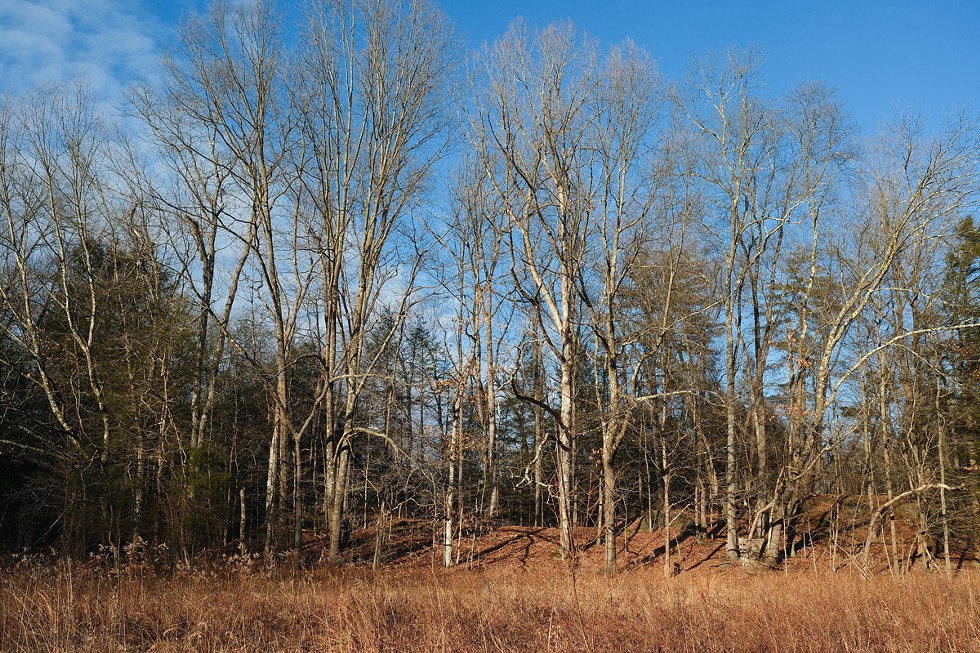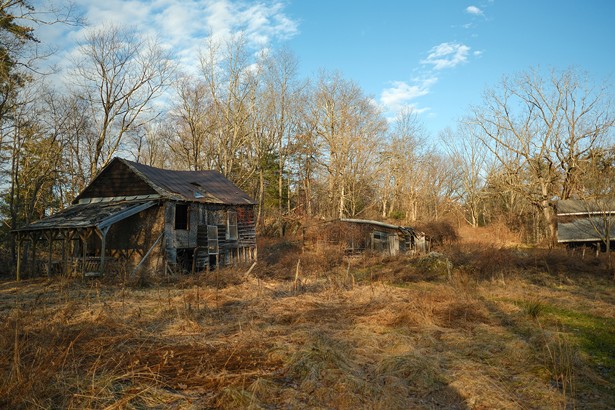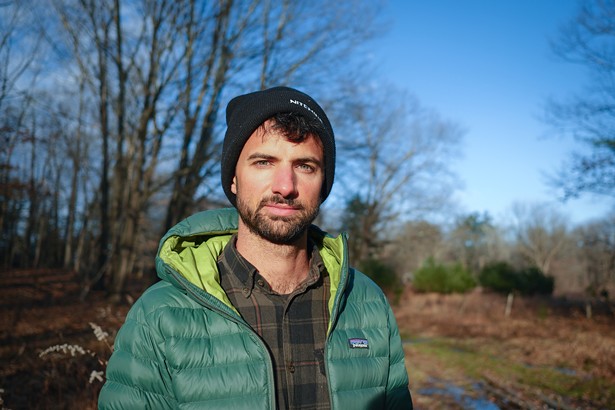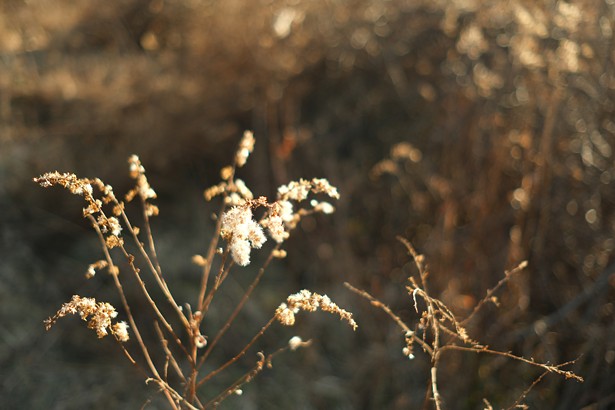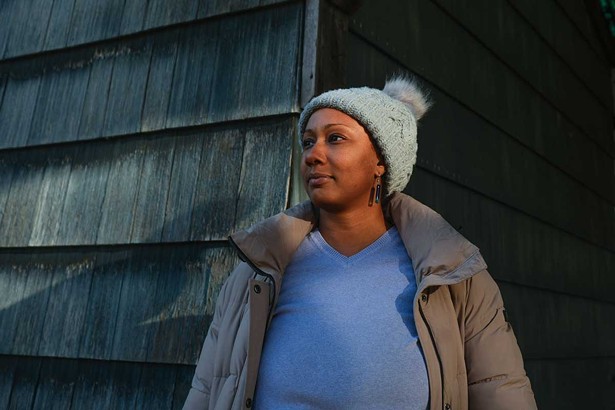A three-minute drive south of Broadway, Kingston’s most bustling throughway, up a steep and winding dirt road, and over well-worn tire tracks lies a grassy paradise. Perhaps the most unsuspecting place for a farm, these 54 acres in the hamlet of Wilbur feature a vast array of wildlife from bald eagles to white-tailed deer (and rumors of a wandering cougar).
An old and unassuming blue wooden farmhouse rests under the shade of 100-year-old trees. A creek weaves from a frog and turtle-filled marsh through the 47 acres of biodiverse forest that surround the property. At the center of it all is the crown jewel: a six-acre meadow lush with grasses, and an old fence that suggests a story of a once-thriving farm.
The Kingston Land Trust (KLT), which has worked to protect and provide access to local land since 2008, is on a mission to turn this historic farm into something new. Once home to former IBM employee Carl McClearn and his family, the property was cultivated for vegetables production and livestock, where McClearn pursued his lifelong dream of farming after retirement. McClearn’s purchase of the property in the early 1980s prevented it from becoming a landfill, which the town had originally intended for it when the land became vacant after prior ownership.
For KLT, the land holds the potential not just to continue flourishing as conserved farmland in perpetuity, but also as a designated space for farmers of color, who are historically underrepresented and number roughly two percent of all farmers across the state.
The meadows, marshland, forest, and farmhouse have been purchased by KLT, as the home base of its Land in Black Hands (LIBH) program, an initiative that was inspired by a February 2019 community-wide conversation held by the organization. Shaniqua Bowden, KLT’s Director of Cultural Engagement and Sustainable Living, says meeting attendees felt “land has become this commodity and signal for wealth,” unaffordable for those without deep pockets. Not to mention, she continued, that many BIPOC community members “have been pushed out of this conversation.”
The discussion was so inspiring to Bowden and the KLT team, that further visioning sessions were held with Black members of the Kingston community and surrounding areas. The group eventually formed a designated steering committee, forming the seed for LIBH, which became an official program within KLT in 2020.
At an early visioning session, the steering group tossed around questions like: What would it look like to have funding? In what ways could that funding be helpful? What would it look like if we had 50 acres of land or more? “This year, those ideas that we discussed in theory are a reality,” Bowden says.
In 2021, when the KLT team learned from a board member that 54 acres of fertile farmland, right in the heart of Kingston, would soon go on the market, there seemed no more serendipitous opportunity. Since then, KLT has cultivated a relationship with the family of the land's former owner, McClearn. “We presented our vision for this land as a way of honoring their family's legacy,” says Greg Shaheen, KLT’s Director of Conservation and Stewardship.
Not only did the land wholly transform McClearn into a happy and content person, says Pam Parisi, his step-daughter, it was a community gathering place for many, where “the doors were always open.” This legacy aligned perfectly with the mission of inclusivity that is the heart of LIBH. McClearn’s children and step-children, who are managing the sale of the property to KLT, wanted to assure the land was not only preserved but “well-used and well-loved,” according to Parisi.
Bowden, Shaheen, and their small team of two others have also spent the past three years finding ways to fund such a big endeavor—costing north of $600,000 for the upfront purchase. Donors have been eager to support the project with funds provided by Scenic Hudson’s Climate and Environmental Justice Fund, the Nature Conservancy, and the NoVo Foundation, along with approximately $90,000 in individual contributions raised from community members from 2020 to 2024 through the LIBH fund (which is still open for donations).
The team secured the necessary funding for the acquisition and has successfully taken title to the property. Yet, there is more funding needed beyond the purchasing cost, with the many repairs and materials the property will require.
Still in the imagination stage: how to most effectively turn the land over to Black farmers. Whether to sell, donate or lease the land to a BIPOC organization will be determined as KLT works with its steering committee and assesses the potential of the land for uses including for housing, as warmer months approach.

Tapping the knowledge of those on the front lines of advocacy for equity in farming has been a primary goal for KLT. Karen Washington is among those with an abundance of knowledge around the issue, whom the LIBH has already consulted and will continue to, is a longtime activist for food justice in New York City and founder of the Black Farmer Fund, which invests funds into Black farmers and agricultural programs across the Northeast. “My work has been to open Pandora’s box and to expose [inequity],” Washington says. “How do you build equity when it comes to land? When it comes to economics?”
In a country that was “built on the backs of slaves and indigenous people,” Washington says that for years many BIPOC individuals didn’t want to be associated with farming. “You never heard us talking about that around the table,” she says. “But now, you’ve got young people, BIPOC people, who want access to land,” whether it be to bring healthier food to their communities, or to simply experience the joy that farming can bring. And yet, when BIPOC individuals set out to find land, rising housing and land costs are a major barrier to access.
Nationwide, land prices are surging, too. Between 2021 to 2022, the cost of land rose 12.4 percent to reach $3,800 an acre, the highest on record since 1970, according to the most recent data from the USDA. As wealth disparities have maintained across the country—in 2022, the average White household had roughly six times as much wealth as the typical Black household—those without resources continue to struggle to access enough funds to enter a low-profit, high-cost industry like agriculture. Even today, according to the Center for American Progress, full-time Black farmers earn one-seventh of the farm income that white farmers earn.
To Washington, Black farmers have to have an “understanding of their rightful place in agriculture,” and it is the support of a community, through initiatives like LIBH, that can help give Black farmers a space to discover this. “The color of our skin is soil," says Washington. "So how do we put our hands back into the soil, so we can grow the food that nourishes our bodies?”
As has been the approach for KLT since its founding, the group will conduct in-depth community conversations to determine what’s next for this land now that the acquisition is completed. “We’re not leaving anyone out,” says Bowden. “We want this to be a collective vision, leaning on all the information we’ve collected over the years.” And as always, she says, “We will steward the land collectively.”







